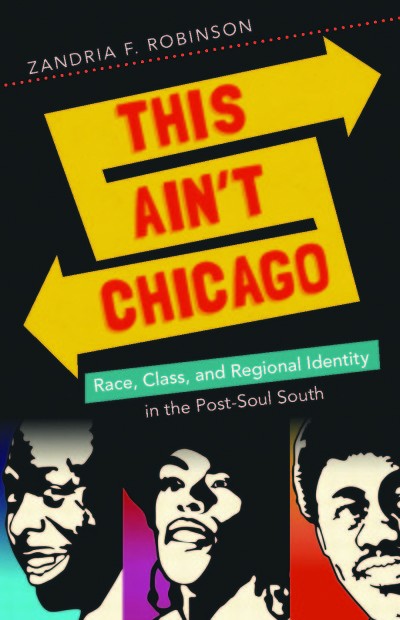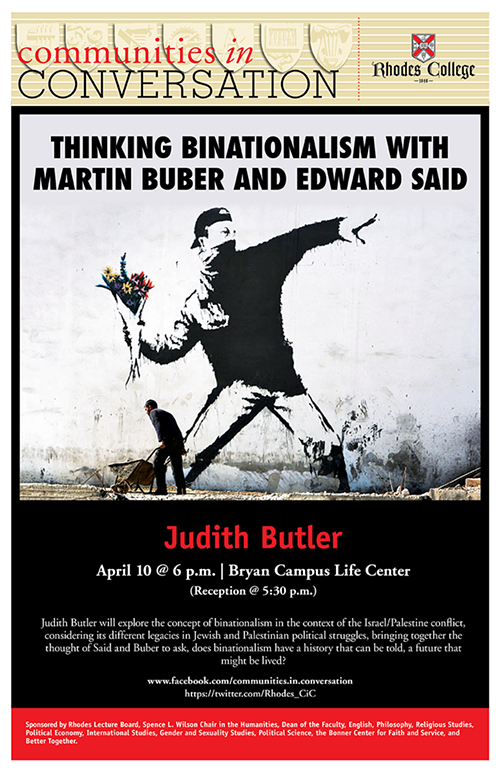Memphis isn’t Chicago. Nor is it an urban magnet on the order of Atlanta.
But Memphis, according to Zandria F. Robinson, is a “key space” and “grounding site” to examine race, class, and regional identity in the post-soul South. She does so in her new book, This Ain’t Chicago (The University of North Carolina Press).
[jump]

Who are these post-soul southerners? Robinson, a native Memphian and assistant professor of sociology at the University of Memphis, defines them as “the generations of African American southerners who came of age after the assassination of King and in the shadow of glacial desegregation, resegregation, increased Latino immigration, and primary and return migration by African Americans from outside the region.”
Robinson spent five years on this study: visiting the literature, referencing theory, interviewing fellow Memphians, and sometimes acting as participant observer in order to separate black southerners from their “migrating cousins and fictive kin, as well as from their white counterparts.” Robinson’s goal: to explore how region “intersects with other axes of identity and difference in the black South.” Among those axes: Old South/New South; rural/urban; soul/post-soul; civil rights/post-civil rights.
Heady stuff, perhaps, for general readers. But Robinson’s first stop in 2003, when she began her research: Memphis’ underground hip-hop scene. Elsewhere in Robinson’s evaluation of regionalized “performances” involving race, class, and gender and as represented in the popular media: Memphian Craig Brewer’s film Hustle & Flow.
Zandria Robinson will be discussing This Ain’t Chicago at Rhodes College on Wednesday, April 9th, in the final event of the “Memphis Centered” lecture series for 2013-’14. The lecture inside Rhodes’ Hardie Auditorium in Palmer Hall begins at 5:30 p.m., with a book signing to follow. For more information, contact Charles Hughes, Memphis Center postdoctoral fellow at Rhodes, at hughesc@rhodes.edu.
The next night at Rhodes, Thursday, April 10th, the lecture topic isn’t Memphis. It’s “Thinking Binationalism with Martin Buber and Edward Said,” and the speaker is Judith Butler — philosopher, cultural theorist, ethicist, and political lightning rod — who teaches at the University of California-Berkeley.

Among the controversies surrounding Butler’s opinions and work, there’s her rethinking of gender and sexuality as “performative” rather than biologically based. And there’s her vocal criticism of Israel and support for the Palestinian civic movement known as Boycott, Divestment and Sanctions (BDS).
Butler’s recent book Parting Ways: Jewishness and the Critique of Zionism (Columbia University Press) created its own controversies, because she asks that we consider not only a new ethos but a new model: one-state cohabitation as the solution to Israeli/Palestinian relations. Radical democracy in the Promised Land? Or is it anti-Zionism verging on anti-Semitism? Here’s your chance to hear Butler — who is Jewish and a proponent of nonviolence — out.
“The academy is the best place to hold these kinds of difficult and fraught conversations,” says Jonathan Judaken, the Spence L. Wilson chair in humanities at Rhodes, of Butler’s visit. “We claim that we are arming our students with the criteria to make critical judgments about the most pressing issues and to do so by consulting the sources themselves.
“I do not agree with everything that Judith Butler says. But unlike so many others in the BDS movement, she forces me to reevaluate my assumptions, to defend my presuppositions, to articulate why I stand where I do, and to state clearly what I find objectionable about those I disagree with. This is what intellectual exchange is all about.”
Judith Butler’s lecture at Rhodes on Thursday — the last this semester in the school’s “Communities in Conversation” series — will take place in the McCallum Ballroom of the Bryan Campus Life Center at 6 p.m. For more information, contact Jonathan Judaken at judakenj@rhodes.edu. •